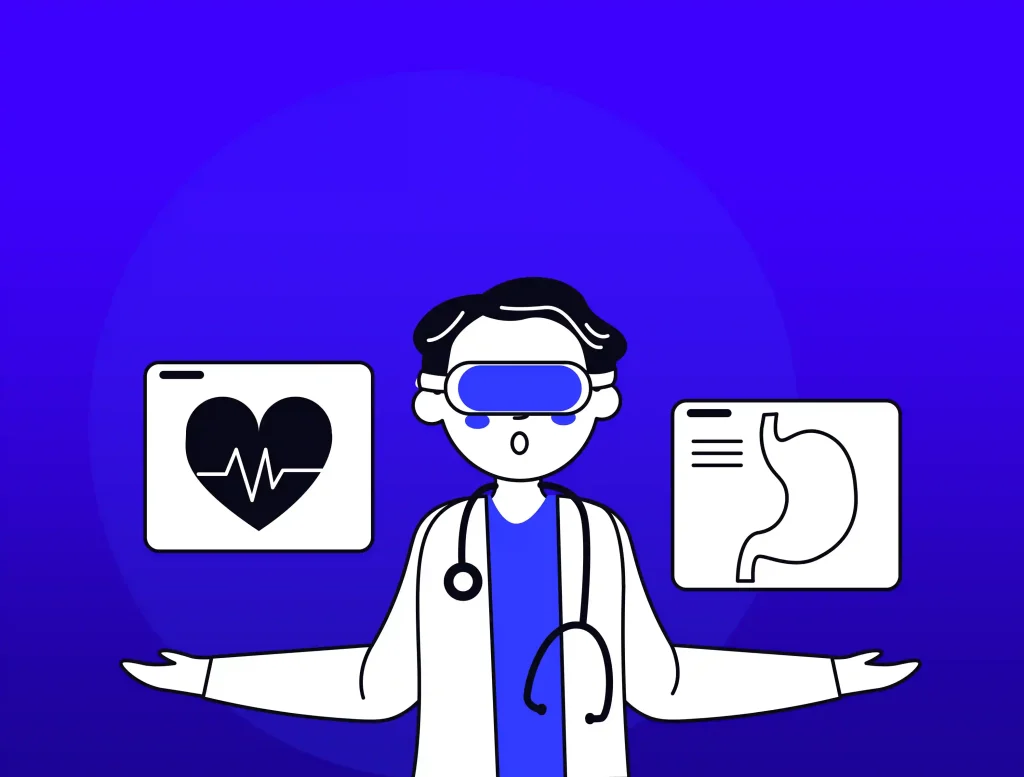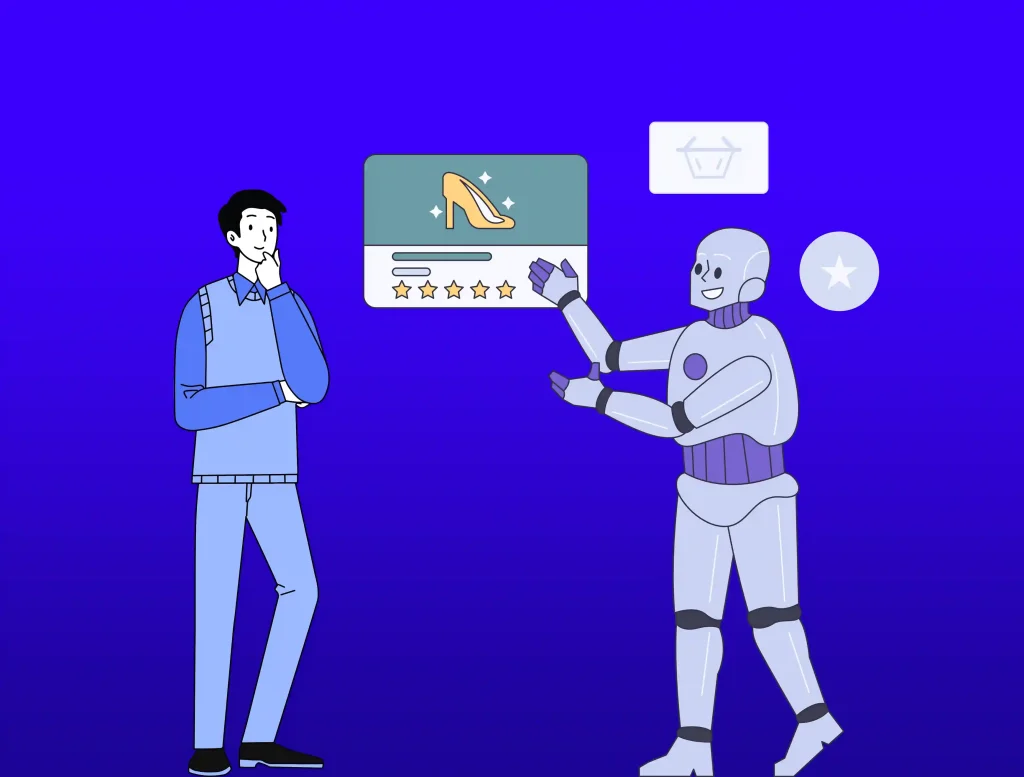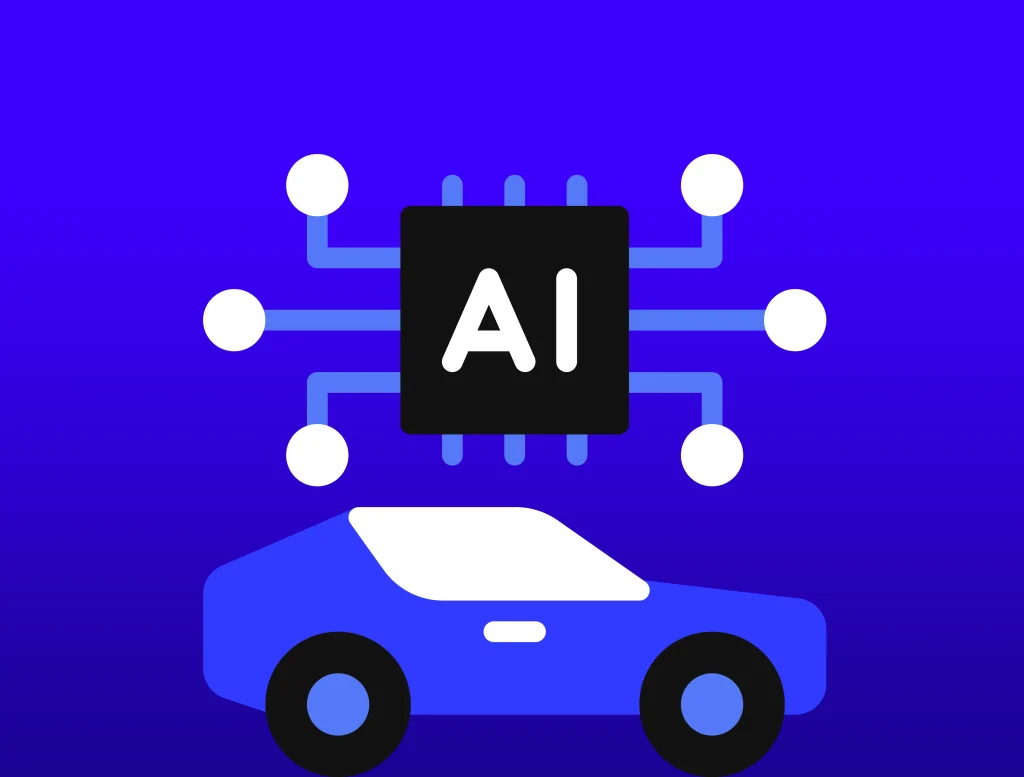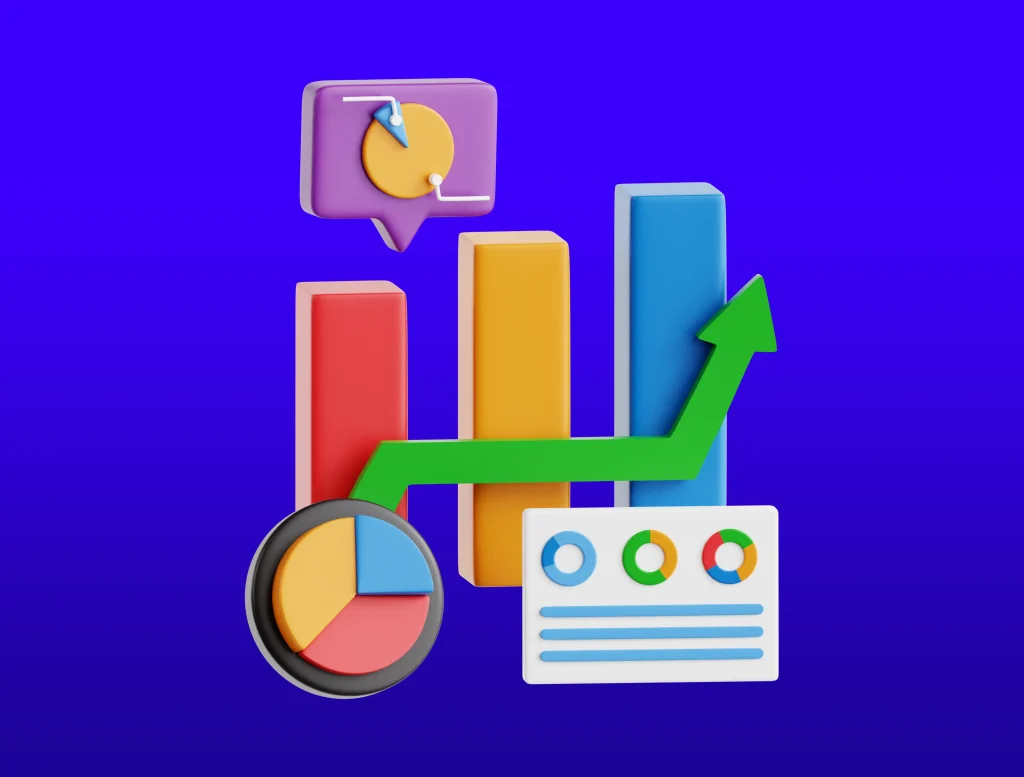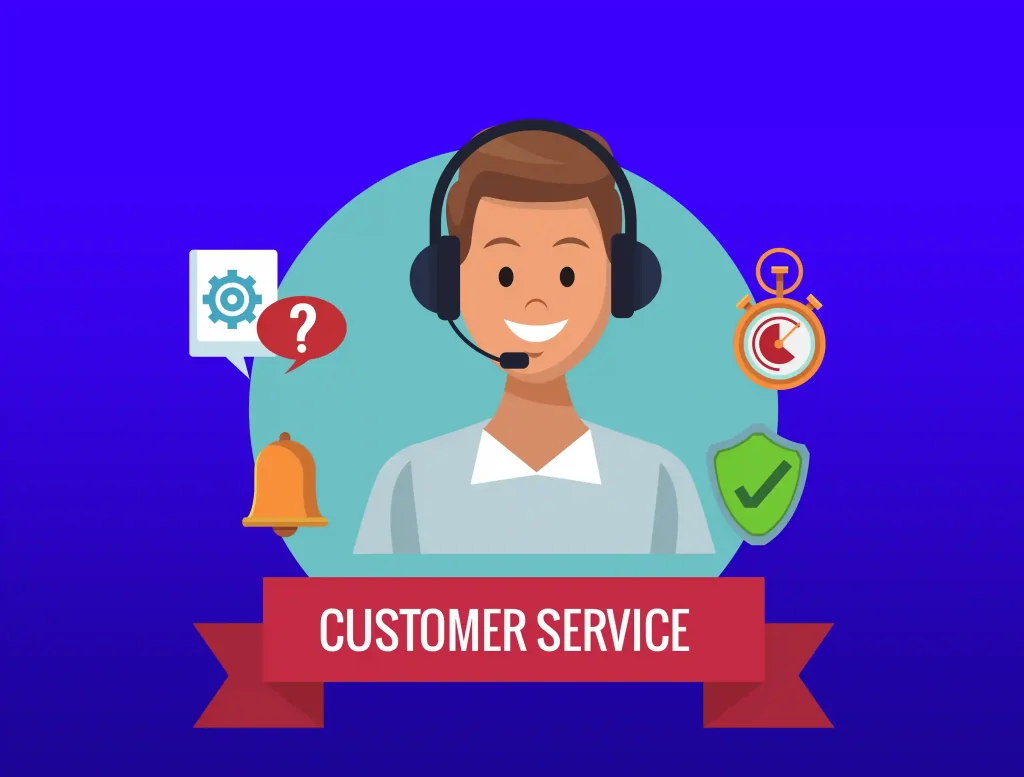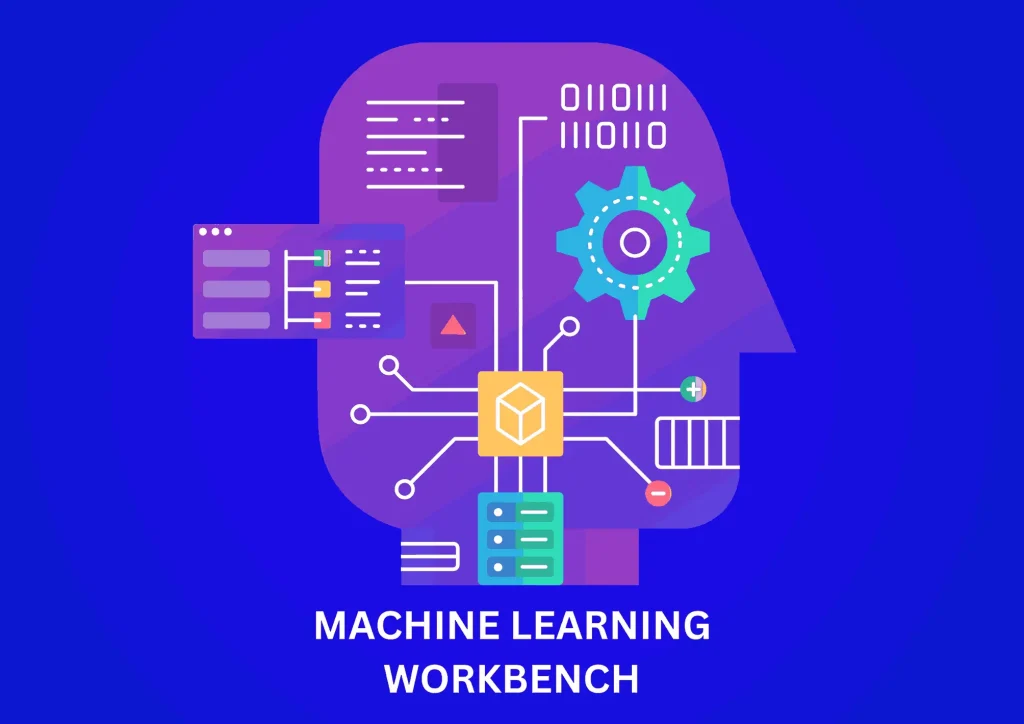AI for Business Automation: The Future of Streamlining Operations
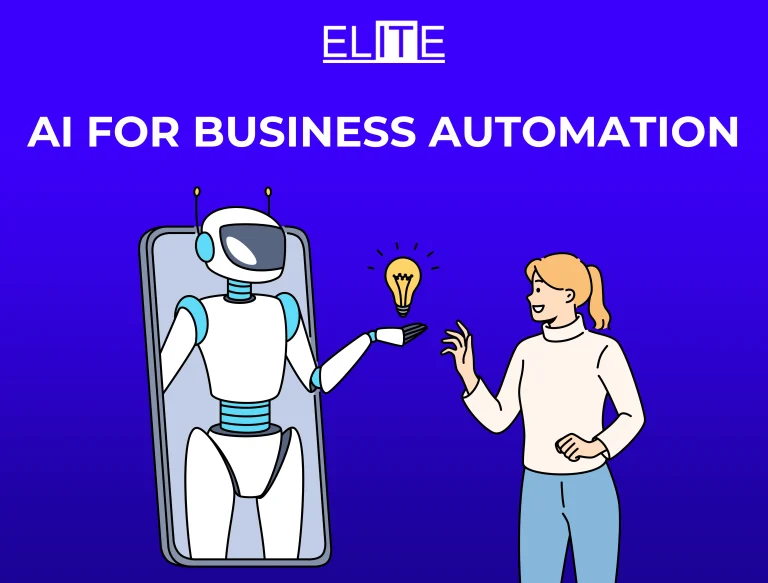
What if we told you that artificial intelligence could transform your business operations from chaotic to streamlined with just a few clicks? Imagine trading in those tedious tasks for time spent on innovation and growth! At Elite IT Team, we believe that AI for business automation is not just a buzzword, it’s the key to enhancing efficiency and productivity. From automating repetitive tasks to improving decision-making processes, AI is changing the way businesses operate, making them smarter and more responsive.
So, why is everyone talking about it? Let’s face it, running a business can feel like juggling flaming swords while riding a unicycle! An AI service provider can help you navigate these challenges by adjusting automation solutions that fit your needs perfectly. With the right support, you can streamline your workflows like a pro. Get ready to embrace the future of AI business automation because it is not just a trend; it is the future of business!
How AI for Business Automation is Revolutionizing Industries in 2024:
Get ready to explore how AI for business automation is not just a trend but a game changer across various industries in 2024! In this blog, you will discover the transformative power of an AI powered business and learn how automation can boost efficiency, enhance customer experiences, and drive innovation. Expect actionable insights that showcase the future of business operations!
Healthcare:
In the healthcare sector, AI tools for business automation are making significant strides, especially in the analysis of medical images like X-rays. These AI-powered tools can quickly and accurately identify anomalies, such as fractures or tumors, reducing the workload on radiologists and enhancing diagnostic accuracy. This means quicker results and improved patient care!
Additionally, automation plays a crucial role in scheduling patient appointments, streamlining the process and reducing no-show rates. By integrating AI systems that can manage bookings, send reminders, and even handle rescheduling, healthcare providers can focus more on patient interactions rather than administrative tasks. This not only enhances efficiency but also creates a smoother experience for patients and staff alike!
Retail:
In the retail industry, AI automated business solutions are transforming inventory management by providing real-time data analytics and demand forecasting. This means retailers can accurately track stock levels, anticipate seasonal trends, and automate reordering processes, reducing the risk of overstock or stockouts.
Additionally, AI-powered chatbots are enhancing customer service by providing instant support for queries related to product availability, order status, and returns. These chatbots can efficiently handle multiple inquiries simultaneously, ensuring customers receive prompt responses. Together, these innovations streamline operations and improve the overall shopping experience.
Finance:
The finance sector is utilizing artificial intelligence in business operations to enhance fraud detection by analyzing vast amounts of transaction data in real time. AI algorithms can quickly identify suspicious patterns, flagging potential fraudulent activities before they escalate.
Additionally, AI tools assist in making faster, more informed trade decisions through advanced data analysis, helping businesses stay ahead in volatile markets. One of the pros of AI in finance is its ability to process complex datasets swiftly, allowing for more strategic decisions. With AI, financial institutions can ensure both security and profitability!
Automotive:
As the automotive industry evolves, implementing AI for business automation in 2024 is becoming crucial for enhancing traffic management. Advanced GPS technology and surveillance cameras utilize AI automation to detect traffic patterns and monitor congestion in real time, allowing for more efficient route planning. Additionally, AI-powered navigation systems significantly improve the driving experience by providing accurate directions and suggesting optimal routes based on live traffic data. This integration not only enhances safety but also ensures a smoother journey for drivers everywhere.
Benefits of AI For Business Automation:
Understanding the benefits of AI in business process automation is essential for any organization looking to thrive in today’s competitive landscape. With AI for business automation, companies can streamline operations, reduce costs, and improve overall efficiency. Let’s dive into the key advantages that make AI an indispensable tool for modern businesses!
Boosting Efficiency:
AI automation significantly enhances efficiency by taking over repetitive tasks that can bog down employees and drain resources. With AI automation for small business, routine activities such as data entry, inventory management, and scheduling can be handled swiftly and accurately. This frees up valuable time for employees to focus on more strategic and creative tasks, ultimately driving productivity and fostering innovation within the organization.
Cost Reduction:
AI automation plays a pivotal role in minimizing errors, which in turn leads to significant cost reductions for businesses. For instance, studies have shown that companies using AI-driven processes can reduce error rates by up to 90%, particularly in tasks like data entry and processing. This drastic decrease in mistakes not only saves money on rework and corrections but also enhances customer satisfaction and trust. As we look towards the future of AI, the potential for AI business automation to streamline operations and cut costs will only grow, making it an invaluable asset for organizations aiming to thrive in a competitive market.
Enhance Customer Service:
As we move towards the future of AI-driven business automation, chatbots are transforming customer service by providing instant, 24/7 support. These AI-powered tools can handle common customer inquiries, such as order tracking and troubleshooting, with speed and accuracy. This not only enhances the overall customer experience but also reduces the workload on human staff, allowing them to focus on more complex issues.
Moreover, AI applications in business are enabling companies to personalize their customer service interactions by analyzing past behavior and preferences. Chatbots can offer tailored recommendations creating a more engaging and efficient support system. As AI continues to evolve, customer service will become even more responsive and customized, benefiting both businesses and their customers.
Improved Monitoring:
With AI-powered workflow management, businesses can achieve real-time monitoring of their processes, ensuring that every task is on track and running smoothly. AI tools can automatically detect inefficiencies, track performance metrics, and alert teams to potential issues before they escalate. This level of monitoring helps optimize workflows, reduce downtime, and enhance overall productivity. By using AI, businesses can gain deeper insights into their operations, ensuring more informed decision-making and a well-oiled workflow.
Tools Of AI For Business Automation:
When it comes to AI for business automation, a range of cutting-edge tools are transforming how businesses operate. From Large Language Models (LLMs) that assist in natural language processing to AI copilots that streamline tasks, these technologies are making automation more accessible. Let’s explore these AI tools shaping the future of automation!
Machine Learning Workbench:
The Machine Learning Workbench is a comprehensive platform that allows businesses to build, train, and deploy machine learning models tailored to their specific needs. It’s designed to simplify the process of integrating AI into daily operations, enabling companies to automate data-driven tasks like forecasting, pattern recognition, and decision-making.
So, what is AI business automation in this context? It’s the use of tools like the Machine Learning Workbench to streamline complex processes and improve efficiency by using real-time insights. However, one of the generative AI challenges businesses face is ensuring these models are ethically trained and produce unbiased results.
Large Language Models:
A Large Language Model (LLM) is a type of artificial intelligence program designed to recognize and generate text, among other tasks. Trained on massive datasets, these models use machine learning—specifically, a neural network called a transformer model—to process and understand language. LLMs are used in various applications, from chatbots to content creation, and even enhancing user experiences by personalizing interactions. Businesses exploring how to use AI for UX can utilize LLMs to deliver more intuitive and engaging digital interfaces, improving customer satisfaction and efficiency.
Copilot:
Copilot is a tool designed to provide real-time, context-aware assistance to both enterprise customers and employees. It helps streamline various tasks by offering immediate support and guidance, whether it’s for complex problem-solving or routine activities. By enhancing productivity and optimizing operations, Copilot allows businesses to operate more efficiently, ensuring that employees can focus on high-value tasks while receiving instant help whenever needed. This tool is becoming essential for companies aiming to improve workflows and drive better outcomes.
Final Words:
As we’ve explored, AI for business automation is transforming industries by streamlining operations, enhancing customer service, and boosting productivity. From AI-powered tools like chatbots to advanced technologies like LLMs and Copilot, businesses are using AI to stay competitive and efficient.
The future of AI holds even more exciting developments, with smarter automation, improved decision-making, and even more personalized customer experiences on the horizon. Ready to integrate AI into your operations? Elite IT Team is here to help you navigate the journey and unlock the full potential of AI for your business!
Table of Contents
Frequently Asked Questions:

Zara Finch
Zara, an experienced professional in the SEO industry for the past two years, is passionate about discussing technology, innovations, and the ever-evolving digital landscape. With a keen interest in exploring the latest trends and developments, she brings valuable insights and expertise to her work.

